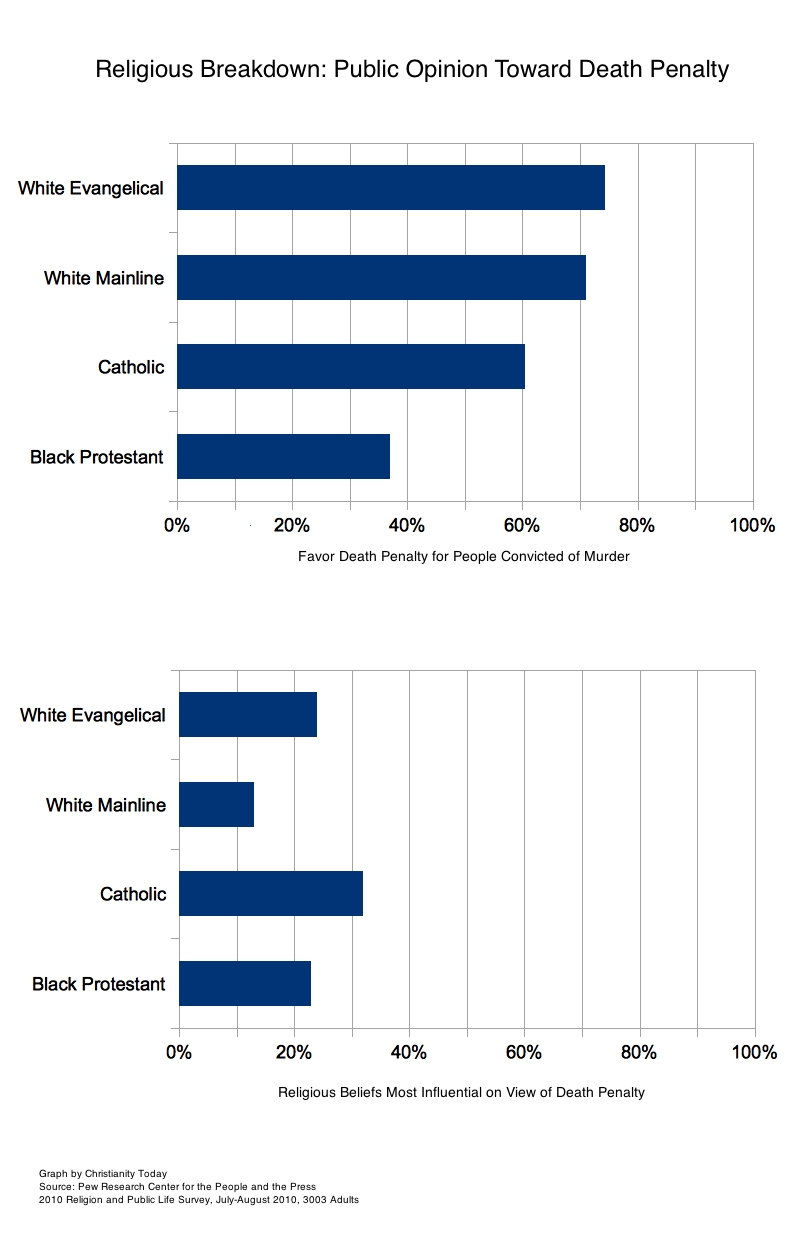The execution of Troy Davis last night in Georgia has reinvigorated public debate over the death penalty. Davis was convicted in the 1989 murder of Georgia police officer Mark MacPhail. The execution made headlines because there were questions raised about the evidence in the case, including recantations by seven of the nine witnesses against Davis.

The execution was condemned by Pope Benedict XVI, former president Jimmy Carter, and governments around the globe. In the U.S., most Christians support the use of the death penalty to punish murders. Unlike Catholics and mainline Protestants, evangelicals support for capital punishment remains high even among those who say their views are shaped most by their religious beliefs.
Public opinion on the death penalty has changed dramatically over the past couple of decades. According to polls by Gallup, support for the death penalty was highest in the late 1980’s and early 1990’s. At that time, 80 percent of Americans said they favored executing murderers. Since then, support has dropped to 64 percent.
A 2010 poll by the Pew Research Center for the People and the Press found support for the death penalty was very high among white evangelicals. Much of these differences were due to race or ethnicity. Three-quarters of evangelicals favor the use of capital punishment. White Mainline Protestants had a similar level of support. Only 60 percent of Catholics approve of the death penalty, but this lower level of support is due to Hispanic Catholics. (only 43 percent support). Black Protestants are the most opposed to the death penalty, with only a third approving of the death penalty.

Many Americans say their views on the death penalty are shaped by their religious beliefs. Pew asked what was the most influential on people’s thinking on this issue. Catholics were the most likely to say their beliefs were the most important (34 percent). Around one-quarter of evangelicals and Black Protestants also said their beliefs were most important. Mainline Protestants were the least likely to cite their beliefs.
There is almost no difference between evangelicals who say they are influenced by their beliefs and those who do not. Around 70 percent of both kinds of evangelicals support the death penalty. Evangelicals who cite religious beliefs are most influential to them are the same as those who say their views are shaped most by personal experience, education, the median, family, friends, or anything else. For other Protestants and Catholics, religious beliefs make them more opposed to the death penalty. Catholics who say they are most influenced by their beliefs oppose the death penalty. Only a third of these Catholics support the death penalty. Support for the death penalty doubles if a Catholic does not cite religion as most influential on their thinking. Similarly, one-quarter of Mainline Protestants who are influenced by religious beliefs support the death penalty. The vast majority of other Mainline Protestants favor capital punishment. For both groups, those who see their beliefs as influencing their views are much less likely to support the death penalty.








